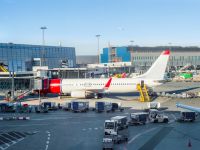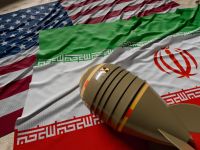Algeria is important to world energy markets because it is a significant oil and gas producer and exporter. Algeria also is a member of OPEC and an important energy source for Europe.
Note: Information contained in this report is the best available as of March 2000 and can change.
GENERAL BACKGROUND:
On April 15, 1999, Algerians elected Abdelaziz Bouteflika as President for a 5-year term. Ahmed Benbitour was chosen as Prime Minister. Bouteflika is attempting to implement plans for national reconciliation and economic reforms.
Algeria's new Minister of Energy, Chakib Khelil, recently indicated that the government is considering restructuring the state oil company, Sonatrach, and Sonelgas, the state utility, in order to attract private international investment.
The major impending change Khelil outlined was to have the Energy Ministry take on Sonatrach's regulatory and negotiating roles. Sonatrach would remain the national oil company but eventually would be forced to compete for new projects.
Khelil also raised the idea of privatizing non-core subsidiaries of Sonatrach, in the context of discussing the government's broader privatization efforts - which extend to banks and utilities.
It is believed that new legislation now pending would help these state corporations attract foreign investment. The government needs to reduce its heavy foreign debt, which is a burden on the economy and an obstacle to growth. Prime Minister Benbitour has said that the government must use other financing while continuing to protect its position as majority shareholder.
OIL:
Although oil was first discovered in Algeria at the Hassi Messaoud oil field in 1956, Algeria is considered to be under-explored. Algeria's National Council of Energy believes that the country still contains vast hydrocarbon potential. Over the last three years, significant oil and gas discoveries have been made, largely by foreign companies.
Under a government program for 1996-2000 launched in April 1996, state-owned Sonatrach and its foreign partners expect to increase Algeria's crude oil production capacity to 1.5 million barrels per day (bbl/d) in 2000. Included in this program are provisions for 300 exploration wells to be drilled between 1996 and 2000, half by Sonatrach and the other half by foreign companies.
Official estimates of Algeria's proven oil reserves remain at 9.2 billion barrels. However, with the recent oil discoveries, plans for more exploration drilling, improved data on existing fields, and use of enhanced oil recovery (EOR) systems, proven oil reserve estimates are expected to be revised upward in coming years.
Algeria should also see a sharp increase in crude oil exports over the next few years due to a rapid shift towards domestic natural gas consumption and planned increases in oil production by Sonatrach and its foreign partners.
Approximately 90 percent of Algeria's crude oil exports go to Western Europe, with Italy as the main market followed by Germany and France. The Netherlands, Spain and Britain are other important European markets. Algeria's Saharan Blend oil, 45o API with 0.05 percent sulfur and negligible metal content, is among the best in the world.
Oil Production
Following the collapse in oil prices in early 1998, OPEC agreed to reduce output by 2.6 million bbl/d; Algeria's crude oil quota was reduced by 80,000 bbl/d to 731,000 bbl/d.
Algeria's average crude oil production in 1999 was 772,301 bbl/d. Together with 430,000 bbl/d of lease condensate and 155,000 bbl/d of natural gas plant liquids, Algeria produced 1.36 million bbl/d of total oils in 1999. Algeria is expected to produce 1.4 million barrels per day in 2000.
The largest oil field in Algeria is Hassi Messaoud, which produces about 400,000 bbl/d of 46o API crude. The Hassi Messaoud area contains an estimated 6.4 billion barrels, or about 70 percent of the country's proven oil reserves. Sonatrach operates Algeria's other major oil fields, including Tin Fouye Tabankort Ordo, Zarzaitine, Haoud Berkaoui/Ben Kahla, Rhourde el-Baguel, el-Gassi el-Agreb and Ait Kheir. The Hassi R'Mel gas field also produces around 18,000 bbl/d of 46.1o API crude.
Algeria's oil sector, unlike that of most OPEC producers, has been open to foreign investors for more than a decade. At the start of 1999, there were 25 foreign firms from 19 countries operating in Algeria. Anadarko Petroleum Corporation has discovered two oil fields, each estimated to contain one billion barrels of oil. Other firms operating in Algeria include Arco, Mobil, Phillips Petroleum, Lasmo, Burlington Resources and Occidental Petroleum Corporation.
One of the largest joint ventures in Algeria is the partnership between Anadarko, Lasmo and Denmark's Maersk Oile to develop the Hassi Berkine South oil field. Oil from the field's Block 404 was first produced in May 1998; the field is currently producing approximately 65,000 bbl/d. It is estimated that the field will be producing 285,000 bbl/d by 2002.
In January 1999, Oryx Energy Company signed a five-year, $28.8-million exploration deal with Sonatrach. Oryx will carry out seismic and drilling activities in the Timissit area of southeastern Algeria. Spain's CEPSA has announced a $1.3-billion plan to develop its 1-billion barrel Ourhoud oil field in conjunction with Sonatrach.
The field, which is slated for eventual production of 230,000 bbl/d, is divided into three blocks operated by Anadarko, Cepsa, and Burlington Resources. Work on a 500,000-b/d oil pipeline to service the field already has been completed by an Anadarko-led consortium.
Although Algeria has experienced a significant influx of foreign investment in recent years, it still has many oil fields in need of additional foreign capital and EOR investment. Production at Hassi Messaoud has declined from more than 550,000 bbl/d during the 1970s to about 380,000 bbl/d today.
Halliburton has an eight-year contract to provide EOR services and boost production. Algeria's second largest oil field, Rhourde El Baguel, has already received foreign investment to boost its production capacity. Rhourde El Baguel contains about three billion barrels of 42.6o API oil, of which less than 450 million barrels has been produced since 1963.
In February 1996, Atlantic Richfield (Arco) signed a $1.3-billion production sharing agreement (PSA) with Sonatrach to increase production at the field. Arco expects to raise the field's output from 27,000 bbl/d to 125,000 bbl/d by 2002. France's Elf Aquitaine has recently finalized a production-sharing agreement with Arco and Sonatrach to take a 40 percent stake in the Rhourde El-Baguel field, marking Elf's return to active production in Algeria since nationalization in 1971.
Remodeling Sonatrach
Algeria's national oil firm Sonatrach is engaged in a five-year, $19.2-billion development plan designed to transform itself into a major international oil company. The plan involves the use of new technologies and cooperation with other international oil firms.
Of the $19.2-billion budget, 62 percent has been allocated to development of oil fields, 17 percent for the construction of pipelines, 13 percent on exploration and the remainder on gas liquefaction and other projects. As protection against low oil prices, refining and petrochemical production will be expanded under the plan.
According to Dow Jones Newswires, Sonatrach is seeking to raise its profile overseas, including investments in upstream operations in Yemen and eventually in Iraq. Sonatrach also is expanding into foreign downstream projects, such as its partnership with Germany's BASF to build a propane dehydrogenation plant in Tarragona, Spain. The plant will use liquefied petroleum gas from Algeria as feedstock.
Source: United States Energy Information Administration.
© 2000 Mena Report (www.menareport.com)







